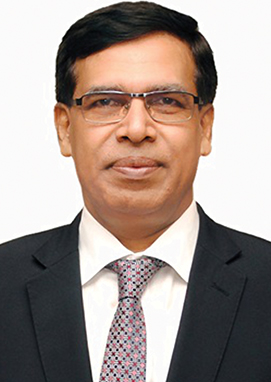Dhaka Stock Exchange managing director explains China choice
The managing director of the Dhaka Stock Exchange explains to Stefania Palma why the bourse chose investment from a Chinese consortium over a competing offer from India, and how the exchange will grow in the coming years.
The Dhaka Stock Exchange (DSE) was thrust into the limelight in 2018 when it announced its intention to sell a 25% stake to a Chinese consortium made up of the Shenzhen and Shanghai stock exchanges, pending regulatory approval.
The Bangladeshi bourse’s announcement raised eyebrows in the region, mainly because the Chinese prevailed over a consortium from India, which has a historically tricky relationship with Beijing. India’s consortium included the National Stock Exchange in partnership with Nasdaq and local private equity firm Frontier Bangladesh. As The Banker went to press, the Bangladesh Securities and Exchange Commission (BSEC) was still reviewing the Chinese bid for final approval.
After the DSE’s choice, the Financial Times reported that the Indian counterparty lobbied Bangladeshi regulators to persuade the stock exchange to reconsider, arguing that Beijing was using this deal to further its influence in south Asia.
But DSE managing director Majedur Rahman stresses that there was no political angle to the negotiations. “We were talking absolutely bilaterally [with the other exchanges], not involving any regulatory authorities or policy-makers,” he says. “We do not care about the lobbyists; it was an absolutely transparent process, everything was open. What we wanted was what could help the development of capital markets in Bangladesh.”
Best offer
Some market participants say the DSE’s decision came down to China’s higher offer: Tk22 ($0.26) per share versus India’s Tk15. While Mr Rahman says the price was important and that shareholders who have put value in the DSE for more than 60 years deserve to be rewarded, he also stresses that price was just one of three criteria determining the bourse’s choice.
The other two requisites were the technical offering and cultural fit, and China’s offer was the best in both respects, according to Mr Rahman. In terms of technical support, the Chinese consortium offered access to an alliance of 11,000 investors interested in small and medium-sized enterprises (SMEs), which are key to the Bangladeshi market. “SMEs are the main thrust sector of our economy and they need to raise capital but don’t have access to capital markets,” says Mr Rahman.
The Chinese consortium offered this access as well as technical support for surveillance, trading systems, product development mechanisms, business process management and information disclosure free of charge for the next 10 years. The Indian consortium, on the other hand, offered technical assistance at an additional cost.
Part of cultural fit is the ability to work together, says Mr Rahman, and India’s request to have the option of exiting the investment in five years was perhaps unconvincing. Apart from this clause clashing with Bangladeshi regulation, Mr Rahman says: “The exchange business is not somewhere you buy shares and then you leave after some time. Five years is too short a period for an exchange.”
New era
The sale of a 25% stake is part of a broader reform of the DSE. After the stock market crash of 2010, regulators decided the exchange had to sell one-quarter of its stock to a strategic investor and offer the buyer a seat on the board. Once this deal is finalised, the DSE will start working on listing an additional 35% stake through an initial public offering (IPO) that Mr Rahman says could materialise in the next two to three years.
In terms of further expansion, Mr Rahman sees potential in Bangladesh’s power sector. “The power sector is the biggest growing sector in Bangladesh. That’s where a lot of capital is needed,” he says. There are 302 companies listed on the DSE, 18 of which are in the fuel and power sector. The exchange expects 45 IPOs in the 2018-19 financial year.
What we wanted was what could help the development of capital markets in Bangladesh
The DSE also plans to launch a number of products targeting retail investors, such as mutual funds and fixed-income securities. “This sector is not very well developed in Bangladesh,” says Mr Rahman. The bourse will also introduce exchange-traded funds in the second quarter of 2018. “Initially we’ll start with local transactions and then once we see some maturity and we have more experience, then perhaps in the coming year we’ll think of overseas markets,” says Mr Rahman.
Upcoming regulatory changes could help the DSE develop further. The BSEC has introduced risk-based capital adequacy requirements for brokers, whereby more capital is needed for brokerage of more sophisticated financial products. This has broadly been interpreted as an indirect form of consolidation. “We had some 250 Trading Right Entitlement Certificate holders, which is a bit overcrowded for the market, so this will be rationalised,” says Mr Rahman.



